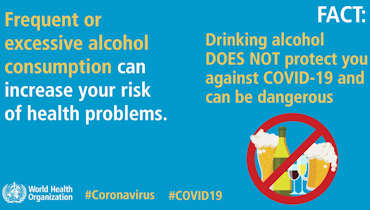There’s a lot of fake coronavirus news around.
Check the facts carefully to tell myths from truth.
Some World Health Organization mythbusters include:
There are no specific medicines to prevent or treat COVID-19.
Antibiotics do not work against viruses (only bacteria). Medical treatment is based on relieving symptoms – at home, or if they are severe, in hospital.
There is also no vaccine yet.
Sun, snow and garlic will not kill the virus.
The sun, UV rays, snow, getting really hot or really cold, spraying alcohol on your body, eating garlic, rinsing your nose, and drinking alcohol will not affect the virus.
Soap breaks down the outer barrier of the virus, so washing your hands often with soap and water is the best way to get rid of it. (This article explains why.)
Catching the disease does not mean you will have it for life.
Most people who catch COVID-19 will recover and eliminate the virus from their bodies.
There is no evidence that pets can pass COVID-19 on to people.
Special diets
The British Dietetic Association says there is no diet or food which can prevent coronavirus.
Places where you can check news articles
You can check internet hoaxes and fake news on Snopes.com
BBC Reality Check covers the facts behind the headlines.
The NHS website nhs.uk includes an A-Z of health and of medicines where you can check claims. You might also want to look at NHS Behind the Headlines.
Public Health England at www.gov.uk has the latest government announcements.
The World Health Organization regularly updates its page of myths, at www.who.int
Bear in mind
Headlines that are negative get more attention, so news channels usually have more bad news than good news. They will show what they think you want to see. But the stories are not always accurate.
You can look after your mental wellbeing by being choosy about how much you read, and when. Go to trusted sources to get the facts, and help other people by making sure stories are true before you share them.
